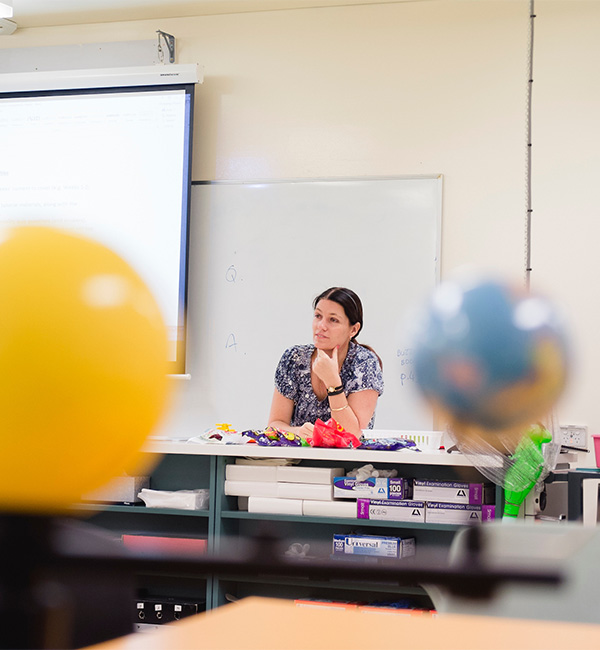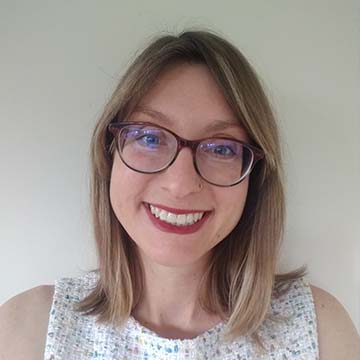Bachelor of International Development Studies
Course information for - 2024 entry
Offered at 1 locations
- Duration
- 3 years full-time or equivalent part-time
- VTAC code
- 1200212321
- ATAR
- 58.50 for Melbourne
- Fees (first year)*
$13554 CSP
- Start dates
-
Semester 1 intake: Not availableMidyear (Semester 2) intake: Beginning July 2024Applications open April 2024
Overview
Studying international development at ACU will give you the knowledge, critical perspectives, and skills needed for compassionate and ethical engagement with communities in the developing world.
With a strong focus on human rights and social justice, the course covers humanitarian work, working with refugees, working for peace, advocacy, environmental sustainability and global health, and managing international development projects.
You will also gain valuable first-hand knowledge of humanitarian and development programs in action through our bespoke, overseas experience in a developing country.

Professional experience
At least three weeks with a development or humanitarian program in a developing country.
Work placement
The Cultural Immersion Experience is an essential part of the Bachelor of International Development Studies where you will gain first-hand experience of everyday life in a developing country. This unique community-based learning opportunity will immerse you in a new culture through a homestay for three weeks in your third year.
Please note that there are additional costs and administrative fees associated with this experience.

Careers
Our graduates have pursued careers in:
- working with non-governmental organisations locally or abroad
- government service
- the United Nations
- international organisations such as The World Bank
- human rights and advocacy
- social entrepreneurship
- fair trade business sector
- eco and responsible tourism
- charity and humanitarian organisations
- private aid distribution
Course details
Course structure
To complete the Bachelor of International Development Studies, a student must complete 240 credit points (cp).
Course map
Graduate statement
AQF framework
Exit Points
Students who have met the requirements of the Diploma in Liberal Arts can exit with that award.
Entry requirements
An applicant must also comply with the Admission to Coursework Programs Policy that includes meeting a minimum ATAR requirement.
International students must meet the English Language Proficiency requirements as defined in the Admission to Coursework Programs Policy.
To be eligible for admission to the course, an applicant must have completed the following prerequisites at year 12, or equivalent:
| State | Prerequisites |
|---|---|
Victoria | Units 3 and 4 – a study score of at least 25 in English (EAL) or 20 in any other English. |
Additional Approvals
Requirements for working with children: All students enrolled must have the appropriate approvals before they undertake DVST307 International Development Global Experience. These are: A working with Children Check (if the placement involves working with children) and/or a National Police check. International students must bring police check documentation from their own countries. All students who have lived in another country for 12 months or more must provide a police check from that country for that period.
Disclaimer: The course entry requirements above are for 2024 Admission. Refer to your relevant Tertiary Admission Centre website for future years' entry requirements.
View transparency admission information
Applicants with recent secondary education
You’ll need to meet the minimum entry requirements and subject prerequisites for your chosen course.
If your school result was affected by circumstances outside of your control, such as financial hardship, illness, disability or a challenging home environment, you may qualify for an access scheme. You can apply through your TAC as part of your application process.
Applicants with vocational education and training (VET) study
You’ll need to meet the minimum entry requirements and subject prerequisites for your chosen course.
For current year 12 students
If you’re a current Year 12 applicant you can be given a selection rank separate from, and in addition to, your ATAR if you’ve completed a competency-based and graded AQF Certificate III or above.
For non-school leavers
If you’ve completed, or are completing a competency-based AQF Certificate IV or AQF diploma you will be assigned a selection rank by your local Tertiary Admission Centre (TAC). This is an entry score based on your individual qualifications and achievements.
ACU has partnerships with TAFE and many private education providers. If you have completed a qualification with one of these partners or with ACU College, you may be eligible for guaranteed entry and/or credit into a related ACU degree. Please apply through your local TAC and then submit a credit application for your previous study.
Applicants with higher education study
You’ll need to meet the minimum entry requirements and subject prerequisites for your chosen course.
If you have completed at least two units of AQF-recognised study at bachelor level or above, you’ll be assigned a selection rank based on your study level, duration and grade point average that will be applied during the admission process.
If your previous study has equipped you with knowledge, skills or experiences that align with the learning outcomes of units in your new course you may be able to apply for recognition of prior learning and you may be able to complete your course sooner.
Applicants with work and life experience
You’ll need to meet the minimum entry requirements and subject prerequisites for your chosen course.
If you have no formal education qualifications you may be eligible for a selection rank based on your work, life or service experience.
- If you’ve been in paid employment, relevant to the course you’re applying for, for a minimum of six months full-time (or equivalent), this work may be assessed for your selection rank.
- If you’re 21 years or older you can sit the Special Tertiary Admissions Test (STAT) through your local TAC.
- You can apply for an ACU bridging course. Our bridging courses allow you to transition back into studying and can give you a head start on the relevant undergraduate degree.
- If you have served in the defence force, your rank and time in service may contribute to your selection rank.
English language requirements
Overall score of 6.0. Individual score of 6.0 in writing and speaking, and 5.5 in listening and reading
Adjustment factors
If you’re currently completing Year 12 you may be eligible for adjustment factors that can boost your rank and help you get into your desired course.
Adjustment factors may be applied to your TAC application if you study particular subjects, attend schools geographically close to our campuses or in certain regional areas, apply as an elite athlete or performer or meet certain other criteria.
Inherent requirement
There are essential components of a course or unit that demonstrate the capabilities, knowledge and skills to achieve the core learning outcomes of that course or unit. You will need to be able to meet these inherent requirements to complete your course.
Learn more about inherent requirements for your course and how they affect you
Pathways
Pathways into course for current or recent Year 12 students
If you can’t meet the ATAR requirement for your choice of course and you’re currently completing Year 12 or finished Year 12 in the two years previously, we have entry programs to get you where you want to be.
Pathways into course for applicants with previous study and/or life experience
Are you applying to ACU as a non-school leaver?
By that we mean, you’re not currently completing Year 12 and haven’t completed it in the two years previously. If the answer is yes and your selection rank isn’t enough to meet the requirements for your desired course you still have a number of options to help you achieve your study goals.
If you’re over 21, you can sit the Special Tertiary Admissions Test (STAT), or you can complete a diploma or bridging course relevant to your desired course.
Fees
Course costs
$13554 CSP
All costs are calculated using current rates and are based on a full-time study load of 40 credit points (normally 4 units) per semester.
A student’s annual fee may vary in accordance with:
- the number of units studied per semester;
- the choice of major or specialisation; and
- elective units.
The University reviews fees annually.
Payment options
You should be able to concentrate on getting good marks instead of worrying about how you’ll pay your fees. We have a number of options that can help you ease the financial burden, including government assistance, scholarships and income support.
Scholarships
You could be eligible for one of the hundreds of scholarships we award each year to help students from across the university with the cost of studying, accommodation or overseas study opportunities. Some of our scholarships are awarded on the basis of merit, but these aren’t just for the academically gifted; ACU also recognises excellence in community engagement and leadership. We also offer a range of scholarships for those who may be struggling financially or who have faced other barriers to accessing education.
How to apply
Domestic applicants
If you are a Year 12 student you must apply through VTAC, UAC or QTAC. Unfortunately, a Direct application cannot be considered.
Deferment
Deferment is available for one year. Find out more about deferment: Deferment Information.
Staff Profile
Dr. Rachel Busbridge
Lecturer (Sociology)
Dr. Rachel Busbridge is a Lecturer in Sociology in the National School of Arts and Humanities, based in Melbourne. Before joining ACU, she held research positions at the Hebrew University of Jerusalem, La Trobe University and Freie Universität Berlin as an Alexander von Humboldt Postdoctoral Research Fellow. A political sociologist, Rachel’s research interests cross nationalism, settler colonialism, political theory and urban studies. Her work has appeared in Political Geography, Political Studies, Theory, Culture and Society, British Journal of Middle Eastern Studies, Interventions: International Journal of Postcolonial Studies and Social Identities, amongst others. Rachel is a Commissioning Editor of Thesis Eleven: Critical Theory and Historical Sociology (Sage).


